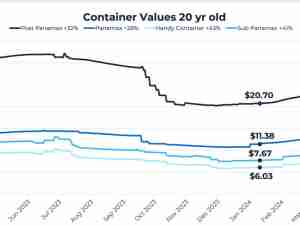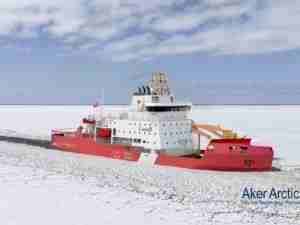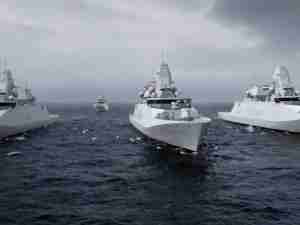On July 17, 2007, the EIB approved a loan facility of EUR 900 million for the Maasvlakte 2 project. This consists of the extension of the Rotterdam port and industrial zone area right on the North Sea offering deep-sea-related container facilities and sites for the chemical processing industry and distribution services. The construction of Maasvlakte 2 will start in the autumn of 2008. The new port and industry area will measure 2000 hectares and offers room for expanding container activities, but also for the chemical industry and distribution. Industry has shown great interest in establishing itself on Maasvlakte 2. The first container terminals have been contracted. It is expected that the first terminal will be operational in 2013 and that around 2033 Maasvlakte 2 will be fully commissioned. Construction of Maasvlakte is estimated to cost EUR 3 billion. The financing structure comprises own resources, (capital, shareholder loans, cash flow) as well as debt finance. Debt finance was a key condition for a favorable Final Investment Decision for the Rotterdam Maasvlakte 2 project. The approved EIB facility aims at fulfilling a significant part of this key condition.
The project is part of Rotterdam's mid-term master plan, which has been subject to an SEA (Strategic Environmental Impact Assessment). The project itself has been subjected to two full Environmental Impact Analyses (EIAs), focusing on the construction works and on the use of the reclaimed land during operation. Significant environmental effects of the sand extraction from the seabed have been identified and full mitigation/compensation measures have been put in place. A full and transparent information policy for the main stakeholders has been initiated and the project has received the green light from the European Commission.
EIB funds will finance the first phase of the project covering the construction of the external maritime seawall works and the respective internal basic infrastructure. After completion, the new port extension will have two new container terminals with a handling capacity of approx. 4.2 million teu (Twenty Foot Equivalent Unit), occupying a total surface of 150 Ha respectively and operating 2 km of quays. Additional land, totaling some 160 Ha, for port complementary uses such as depots, industry, environment, etc. will also be included.
President Maystadt commented, "That EIB has been a leading source of bank finance for strategic high-quality transport infrastructure for many years and that the current operation once again confirmed the Bank's role as an innovative and catalytic funding partner.'
"Havenbedrijf welcomes the EIB as a financing partner due to its long loan maturities, its contracting flexibility and its favorable terms which are particularly well adapted to large-scale infrastructure. With this EIB financing facility an important basis has been established for attracting further debt financing," said Mr. Hans Smits.
The current loan is a continuation of the successful cooperation between the EIB and HbR. Previously, the Bank financed with EUR 300 million the construction of both the Euromax container terminal and the Delta 2000-8 container terminal.








